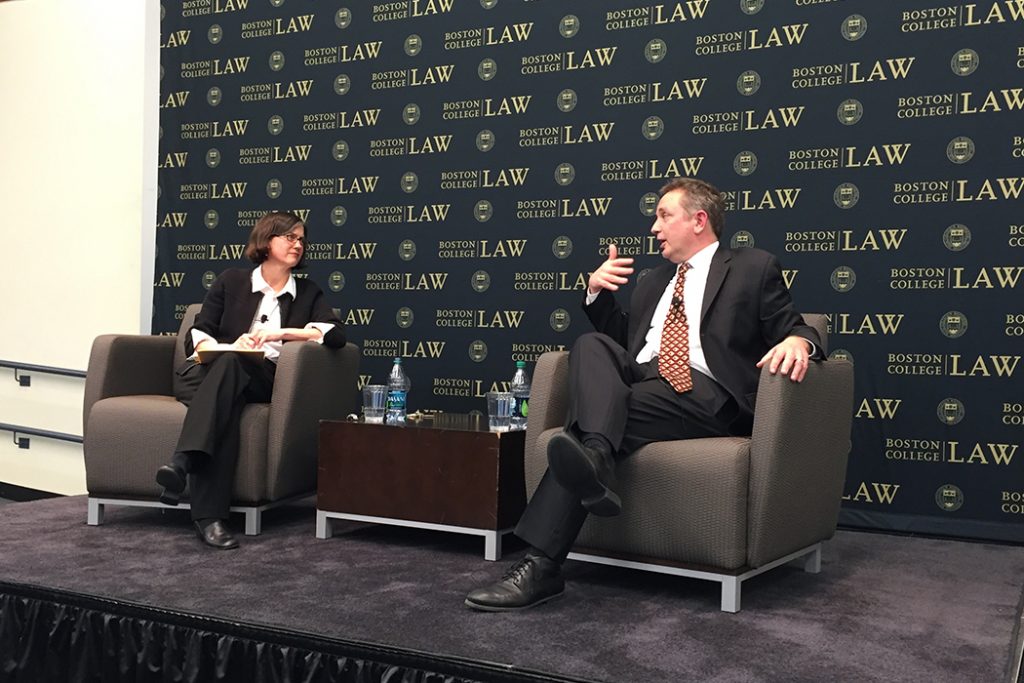First Circuit Court of Appeals Judge David Barron engaged in a wide-ranging interview with Boston College Founders Professor Mary Bilder in March, in which he discussed his personal experiences as a law professor and public servant. His observations touched upon everything from Constitutional interpretation to practical application of civil liberties in a judicial context, and the different dynamics of state, supreme, and circuit courts.
“Anyone who works in the government realizes that your work product is likely to become public and scrutinized,” Judge Barron said. “Never put your name on anything you cannot defend.” The process of his confirmation for the First Circuit reaffirmed in him, he said, “what the public expects from a judge, which is a very healthy expectation: Is this person capable of deciding a case fairly?”
BC Law Professor Emeritus Sanford Katz introduced Judge Barron. “David had the reputation [as professor] at Harvard Law School of being very caring for his students, happy to give them career counseling, write letters of recommendation…and trying to get them good jobs and clerkships,” Katz said. “And he was very successful. We have a few of his students on our faculty today thanks to him.”
The former S. William Green Professor of Public Law at Harvard Law School, Barron previously served as the Acting Assistant Attorney General of the Office of Legal Counsel at the United States Department of Justice. Although “politically minded” in high school, his path to the law was not direct: He became a journalist after college and spent two years in North Carolina working for the News Observer. “I really wanted to go south since I was really interested in the civil rights movement,” he said. He made distinctions between journalistic writing and academic judicial writing, in which “there is a degree of precision that is not always conducive to pleasure for the reader. When you have to choose as a judge, you must choose precision over readability,” he added.
The nature of clerkships haven’t changed much over time, Barron said, when discussing his clerkship for the Ninth Circuit and for Supreme Court Associate Justice John Paul Stevens. “If you’ve clerked, it’s not a surprising job….It’s not by design an institution meant to be innovating tremendously. We write opinions, decide cases. But what’s surprising is when you actually have to make a decision; it’s a different outlook as a judge.” After clerking, Judge Barron’s “first real job” was as one of the line lawyers for the Office of General Counsel in the second Clinton Administration, which at the time, he said, “was not an office that had clearly defined goals. Were we the President’s counsel, or were we to have a greater role in formulating policy?”
Speaking to legal careers in general, Judge Barron said, “You don’t know now what might be of interest to you in the future.…You will have a strong reaction to some cases that you might not have predicted in advance.”
The event, held at BC Law, was sponsored by the Clough Center for the Study of Constitutional Democracy, the American Constitution Society, and BC Law Dean’s Office.


